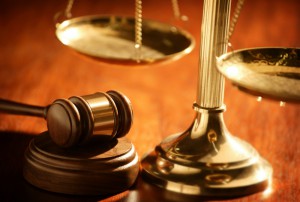Welcome to ASUCSB Judicial Council
Current Case(s):
Associated Students v. Internal Vice President Lala
Hearing Date: February 10, 2026, 5:00 PM PST
Decision, Associated Students v. Internal Vice President Enri Lala
Honoraria Appeals Form: https://forms.gle/asRVMbhe8bivMt3Q9
Please fill out this form to appeal your Honoraria decision. Be sure to include all relevant information and be as specific as possible in your reason for appeal and evidence.
Judicial Council Advisory Opinions
Article VIII Section 5(B)(4) of the Constitution of the Associated Students of UCSB empowers the Judicial Council to “render advisory opinions upon the request of a three-fourths (3/4ths) majority of the voting membership of the Senate.” (16)
Should the Senate find themselves concerned with interpretation of the Legal Code, beyond the scope of legal counsel provided by the Attorney General, a motion can be made to request an advisory opinion from the Judicial Council.
A request for an advisory opinion should take the form of a PDF document emailed to the Judicial Council Chair from Senate leadership. The request should include a specific question(s) for the Council, as well as a clear explanation of background information and any relevant attachments. The request should reference the exact section of the Legal Code in dispute.
The Judicial Council will decide whether or not rendering an advisory opinion is the appropriate procedure for addressing the given situation. This decision should be made at the next regularly scheduled mandatory meeting of the Judicial Council. Should the Council vote to render an advisory opinion, the Chair will notify Senate Leadership with a timeline on the release of the opinion.
2025/2026 (2526) Petitions
Petition 01-2526 Preliminary Hearing Decision
Judicial Branch of UCSB Student Government
The UCSB Associated Students Judicial Council serves as the judicial branch of the student government empowered to hear and resolve any cases under its legal jurisdiction, as noted in Article VII of the AS Legal Code. Included in this provision is the responsibility of the Council to adjudicate completely and diligently questions pertaining to the AS Legal Code, including, but not limited to, the By-Laws and policies of any AS entities — including all AS Board and Committees, KCSB, and all AS Business Services in order to render a just and equitable decision. The Council operates independently with unabridged sovereignty from Student/Faculty Commission on Student Conduct. Judicial Council acts as the final appellate body to which all appeals are formally directed to and justly addressed in a formal professional hearing process of the court that begins with following the procedures outlined on this website as well as the updated AS Legal Code. The court hearing process may initially seem a bit convoluted than expected, however the distinct resources provided on this website and the updated AS Legal Code will allow you to familiarize yourself with the basic procedures of appealing a case and facilitate your ability to pursue concrete action for the justice of the association accordingly.
The Council consists of an executive chairman, four members-at-large, and a non-voting staff advisor who guides the Council in make sound decisions. Judicial Council operates very similarly to the U.S. Supreme court, by allowing students to address their own concerns whenever necessary by participating in a professionally systematic court hearing procedure, open forum, and the extensive deliberation among the Council members at the end of the hearing to render a justified decision that seeks to amend the issue of existing political conflicts and mitigate violations of the Legal Code to sustain the promising operation of our association in representing the student body and catering to their respective needs.

This website has been constructed to primarily provide an intimate understanding and knowledge of the judicial process within Associated Students and to establish formidable access of our resources for any given enrolled individual student who aspires to utilize our services in combating political injustice within the association. Please feel free to submit any questions or comments you have by using Judicial Council’s email address, which is located on the contact us page of the website, insofar as to optimally exercise the student power that has been vested to you allowing us to collectively advance our institution for the greater good and establish secure justice that restricts any marginal room for political corruption and violations of the Legal Code to surface.
